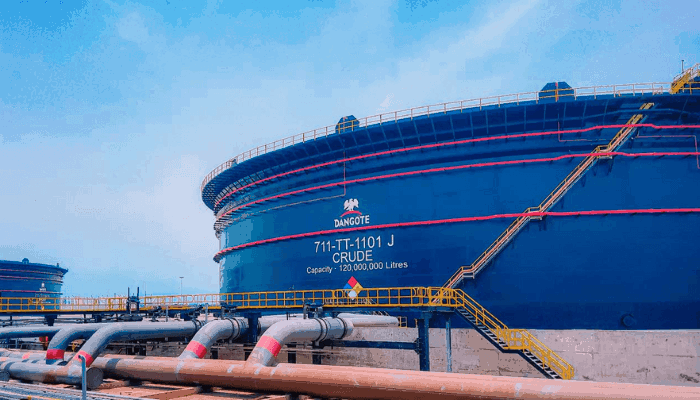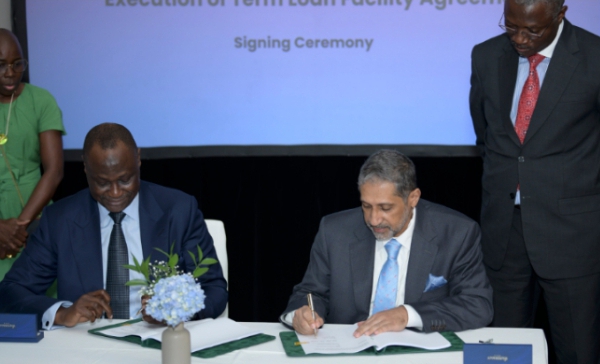By Oke Peter
Devakumar Edwin, Vice President of the Dangote Group, has issued a stark warning about what he describes as a disturbing pattern of internal sabotage orchestrated by a small faction of Nigerian workers within the company’s multi-billion-dollar refinery. His remarks, delivered with a mixture of frustration and incredulity, paint a troubling picture of industrial misconduct at a time when Nigeria is seeking to revive its energy sector and restore confidence in local production.
According to Edwin, the Dangote Refinery—widely regarded as one of Africa’s most ambitious energy projects—has suffered no fewer than twenty-two deliberate attempts at disruption from within its workforce. These acts, he said, were not accidental lapses or routine errors, but carefully executed efforts aimed at crippling the facility. He described the culprits as “unpatriotic saboteurs,” individuals whose actions run counter to the national interest and jeopardize one of the country’s most significant private investments.
Edwin explained that some of the attempts involved triggering fires in sensitive sections of the refinery, while others manifested in calculated manipulation of machinery or subtle interference with core operations. In a complex industrial environment where precision is non-negotiable, he stressed, even the smallest act of tampering can have devastating consequences, risking not only financial losses but also the safety of thousands of workers and the surrounding communities.

“These were not random issues,” he noted. “They were deliberate, coordinated efforts to inflict damage. If not for the advanced control and monitoring systems we installed, the outcome could have been disastrous.”
The refinery’s high-tech surveillance and automated safety architecture, Edwin added, played a crucial role in exposing and neutralizing these threats before they escalated. The facility’s digital nerve centre—equipped with real-time sensors, automated shutdown protocols, and data analytics—made it possible to trace irregular activities and prevent what could have spiralled into large-scale operational failures.
But for Edwin, the technology is only one part of the story. The larger question, he argued, concerns the mindset and motivations of those entrusted with safeguarding critical infrastructure. He expressed dismay that such behaviour could emerge within a private venture where workers are expected to be partners in progress, benefiting from consistent remuneration, improved welfare packages, and direct exposure to global best practices.
His concerns, however, extend beyond Dangote Group’s industrial ecosystem. Edwin raised a pointed question that resonates deeply within Nigeria’s broader debate on public sector inefficiency: If workers could attempt such acts in a strictly monitored private facility, what then might be unfolding in government-owned refineries—institutions historically plagued by mismanagement, intermittent operations, and recurring losses?
He suggested that the lack of accountability in public enterprises, coupled with entrenched union protections, may create environments where sabotage could thrive unchecked. In government facilities, he argued, workers often enjoy guaranteed salaries irrespective of productivity levels, while disciplinary measures can be stifled by layers of bureaucracy and labour resistance.
“In the private sector, oversight is tighter. There are consequences,” he said. “But imagine what could be happening in refineries where, even if operations are grounded for years, staff still earn salaries. And if government attempts to enforce accountability, the unions immediately rise in their defence. If these individuals could attempt to sabotage a private refinery where they know they will be caught, what could they have done in places where the system shields them?”
Edwin’s remarks revive longstanding concerns about the culture of impunity that has often hindered Nigeria’s industrial progress. For years, public refineries have absorbed massive government spending without corresponding output. Despite repeated rehabilitation efforts, many of these facilities remain idle or operate far below capacity, fuelling dependence on imported petroleum products. While structural issues are frequently cited, sabotage—both internal and external—has also long been whispered about as a hidden factor behind persistent failures.
By drawing a parallel between Dangote’s experience and the possible dynamics within public institutions, Edwin is not merely airing grievances but urging policymakers to confront uncomfortable realities. His comments point to a deeper need for reforms that strengthen internal controls, modernise operational systems, and cultivate a culture of responsibility across both private and public sectors.
Industry observers note that the refinery, which promises to transform Nigeria from a heavy importer to a potential exporter of refined products, has symbolic significance that transcends economics. It represents a test case for whether large-scale industrial ventures can succeed in an environment often marked by vested interests, systemic leakages, and resistance to change. Sabotage, therefore, is not just an attack on a company—it is an attack on national aspirations.
Edwin’s revelations may spur calls for stronger collaboration between private enterprises, security agencies, and regulators to protect strategic national assets. They may also provoke a broader conversation about workforce ethics, institutional accountability, and the need to align labour relations with national development goals.
Ultimately, his message is both a warning and a challenge: Nigeria cannot afford to aspire to industrial greatness while tolerating behaviours that undermine the very foundations of progress. For the Dangote Group, the refinery remains a symbol of resilience, engineered with safeguards to withstand both technical and human threats. For the country, it may serve as a mirror reflecting the urgent need to rebuild trust, discipline, and professionalism within the workforce tasked with powering its future.








